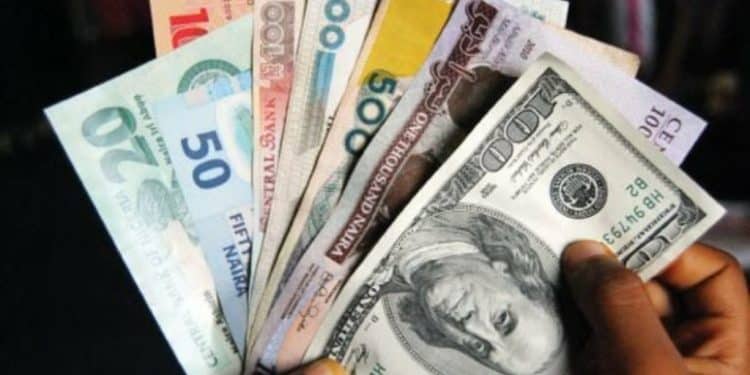The International Monetary Fund (IMF) has warned that Nigeria’s exchange rate could depreciate 35 per cent this year.
The bank disclosed this in its February 2024 Post-Financing Assessment and Staff Report.
According to the report, this could lead to a massive surge in inflation, reaching a peak of 44 percent, before monetary policy can effectively address the situation through tightening measures.
The IMF stressed that the current tightening of the monetary policy is inadequate to reduce inflation to below 20 percent. Moreover, pressures on the Naira continue to persist.
On Tuesday, the Nigerian naira experienced further depreciation, reaching N1,900 to the dollar in the parallel foreign exchange market. However, it recovered to N1,551.24 per dollar at the Nigerian Autonomous Foreign Exchange Market (NAFEM). The Nigerian government recently revealed plans to address the currency challenges by seeking $10 billion in funding to boost liquidity in the foreign exchange market.
The report observed that the exchange rate is expected to undergo further depreciation due to the absence of local production and the recent liberalisation of commodity imports.
Monetary policy is tightened insufficiently to bring down inflation below 20% and pressures on the naira persist. In addition, Nigeria was hit by another adverse climate shock in early 2024 (following severe flooding in late 2022) that exacerbated the current weakness in agriculture and led to a decline in output and a surge in food prices,”
“Given the absence of local production and the recent liberalisation of commodity imports, the exchange rate would likely depreciate further—by an estimated 35% in 2024—and contribute to a further sharp rise in inflation, peaking at 44%, before monetary policy is eventually tightened sharply.”
The Bretton Woods institution suggests that the country would gain from formulating a comprehensive macroeconomic and growth strategy in collaboration and with support from development partners.
Despite these challenges, the IMF is optimistic that Nigeria will fulfil its repayment obligations to the Fund, provided it continues to focus on servicing external debt.
“Nigeria could repay the fund, even in the downside scenario. This assumes that the authorities continue to prioritise external debt service. However, debt service would compete directly with urgent humanitarian needs to tackle rising poverty and food insecurity which would need to be prioritised,” it said.
The fund further predicted that the country’s growth could fall to zero in 2024 and only slowly recover to two per cent in 2028.









